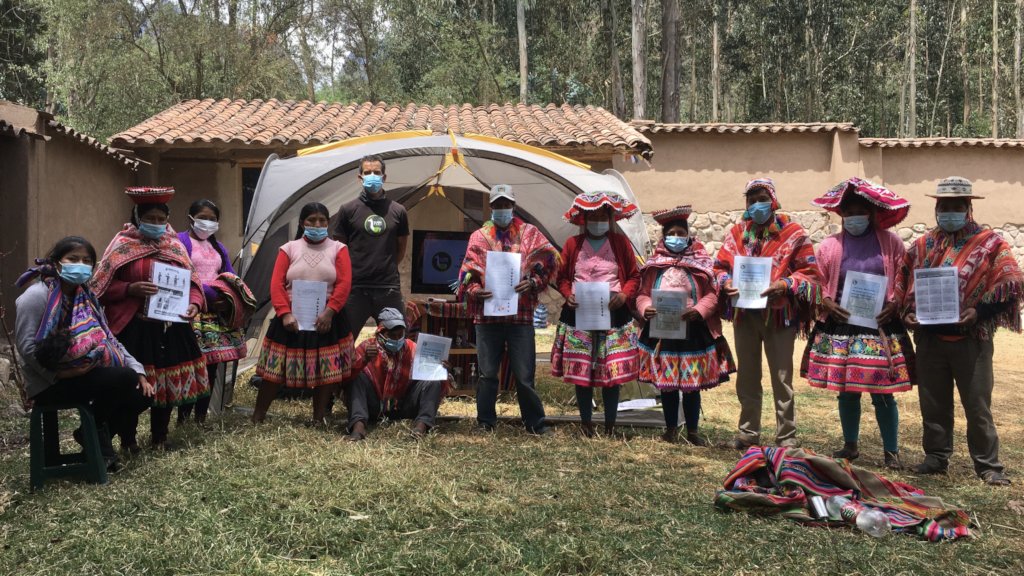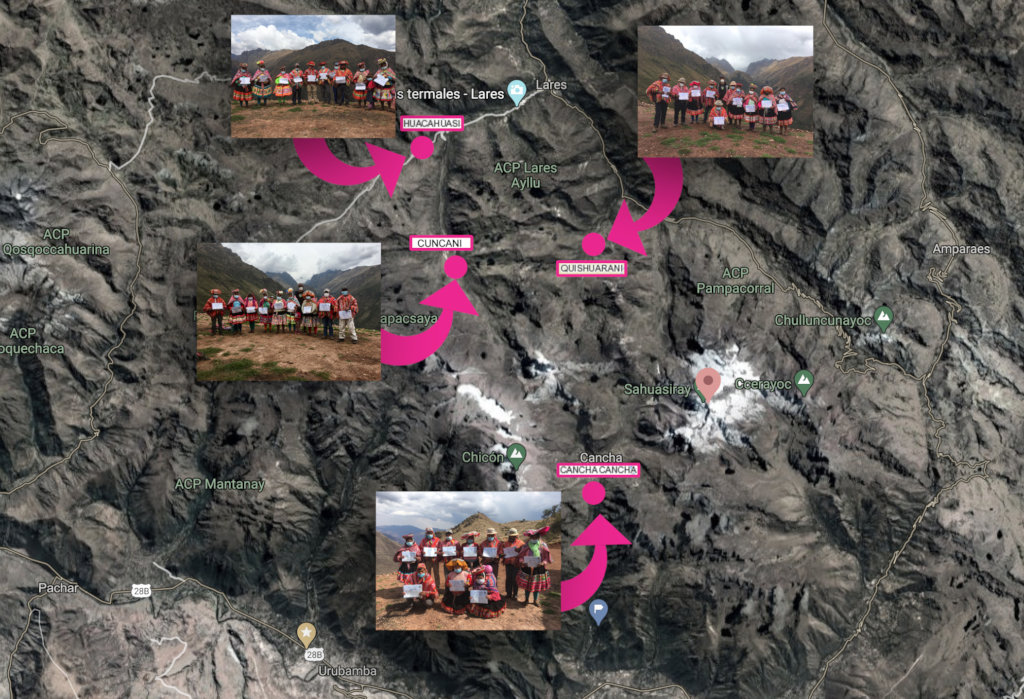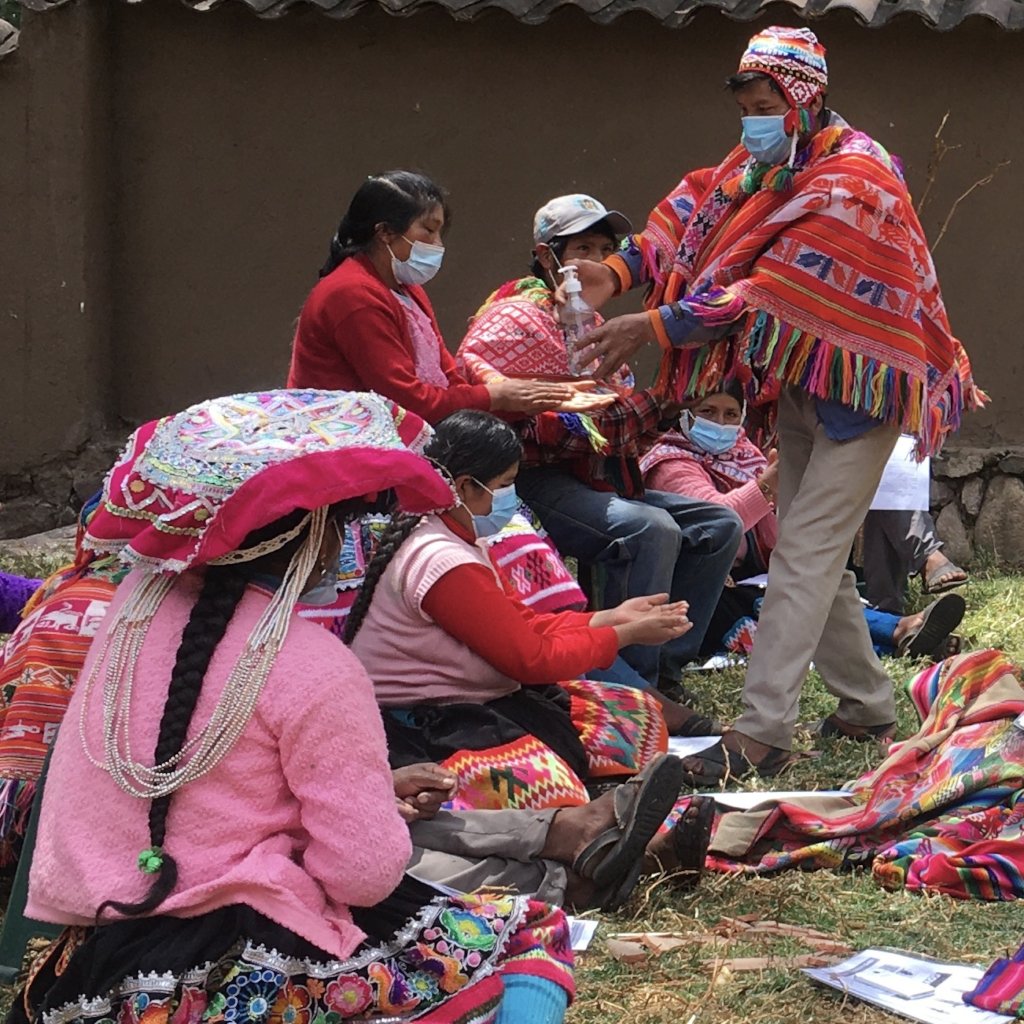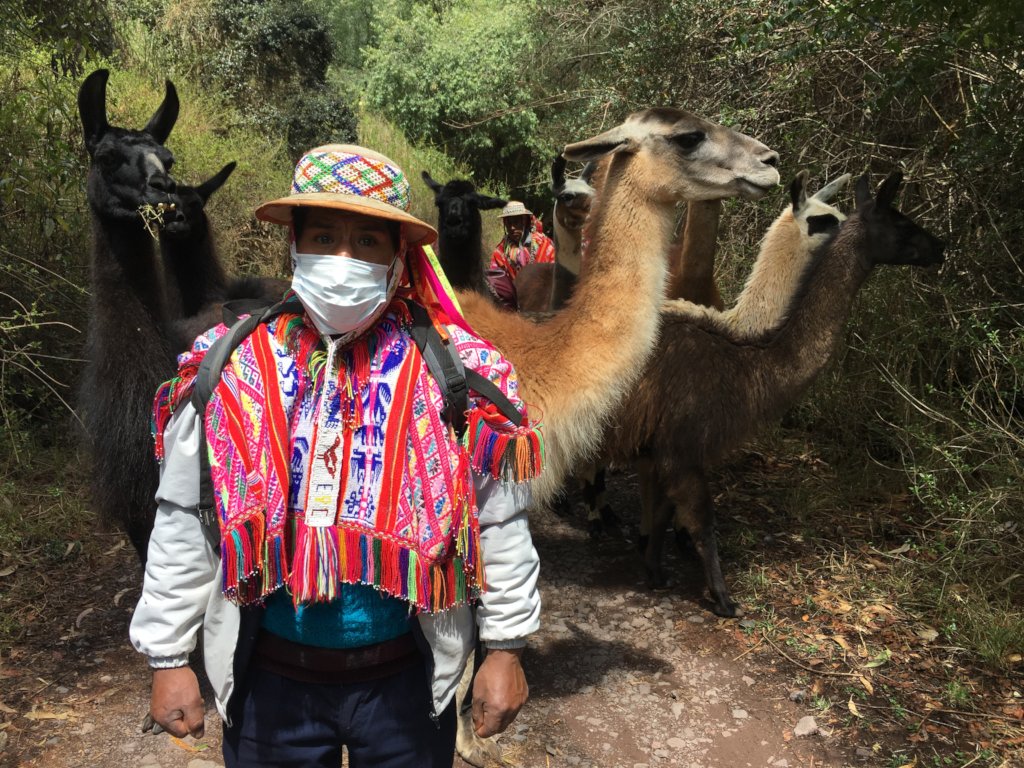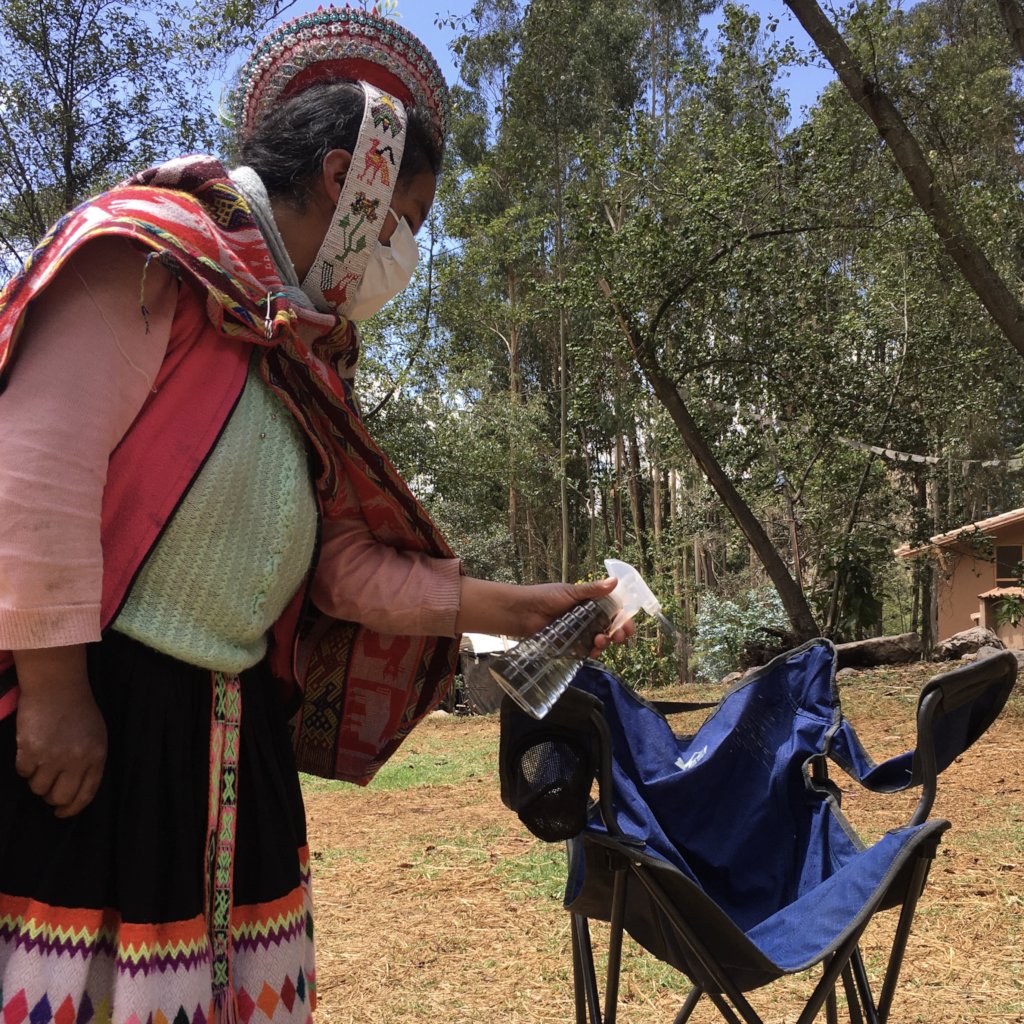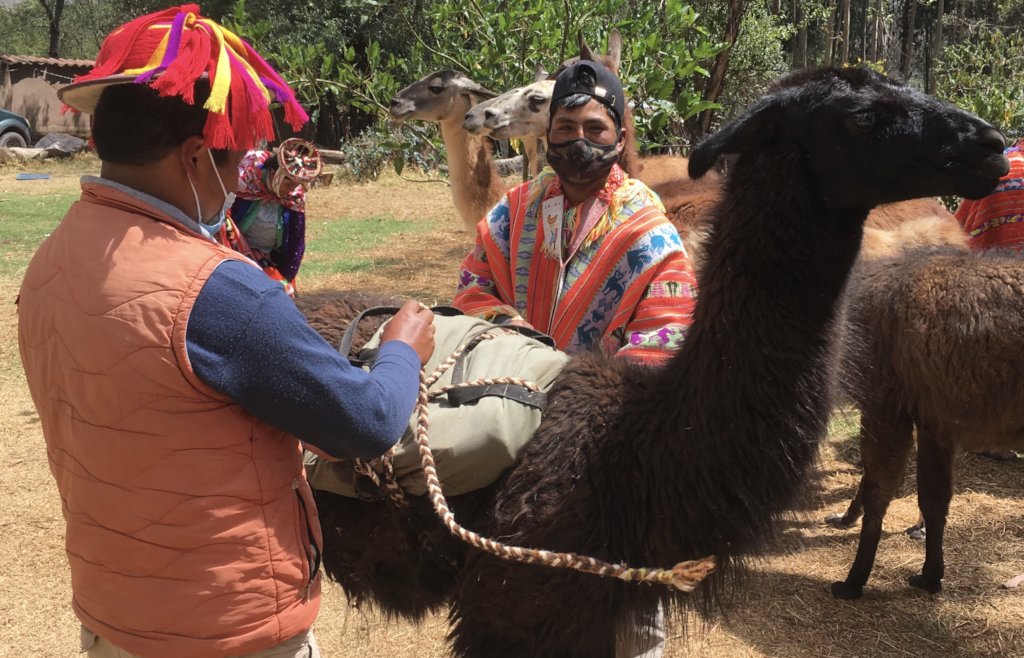By Alejandra Arias-Stella | Co-Founder
Project: Help 85+ llama farmers in Peru access fair work
* You may view the full report on the PDF document attached at the bottom of the report with full size images.
Activities:
2-day intensive trainings for men and women llama farmers to gain necessary skills to provide a sustainable eco-friendly pack service with their llamas to tour operators in their area.
Progress:
After a general improvement on the national health crisis due to COVID-19 which led to the ease of pandemic related restrictions the Llama Pack Project was able to begin the implementation of the training workshops for Andean Llama Farmers.
The first communities to participate in the trainings have been Cancha Cancha, Huacahuasi, Quishuaraini and Cuncani. During the months of November and December the first four workshops were implemented with the participation of 40 Andean Llama farmers.
The workshops will continue after the rain season comes to an end around mid-March given that all activities are led outdoors and community activities are currently focused on llama breeding and birthing during the rain season.
Workshop Outcomes:
Training of Cancha Cancha Guild Members:
18-19 November 2020
The Guild of Llama Breeders of Cancha Cancha community was one of the first two communities to join the Llama Pack Project and is the most active in their continuous participation in training and improve-ment of tourism related services. It is also the Guild with more active female participants which generates a unique positive sense of compe-tition between men and women to prove their ability to handle their llamas for tourism. The women of Cancha Cancha stand out for their kindness and enthusiasm to work with their llamas.
The first 10 llama farmers that participated in the training workshop found special value in the COVID-19 prevention guidelines which they had not had access to in their community and actively communicated their enthusiasm in continuing to work with their llamas once tourism returns.
Training of Huacahuasi Guild Members:
25-26 November 2020
The Guild of Llama Breeders of Huacahuasi community stands out for the friendliness of its members and their openness and extra motivation to participate in trainings related to the work with their llamas and tourism related services. This Guild stands out for its good cooks and also because it is the Guild with the eldest members who transmit their ancestral knowledge on llama, pasture and water management and their cultural legacy.
The first 10 llama farmers that participated in the training workshop found special value in learning how to adapt their ancestral use of llamas to a tourism pack service in a practical way, they also shared their motivation to keep learning about healthy llama breeding and pasture management practices.
Training of Quishuarani Guild Members:
2-3 December 2020
The Guild of Llama Breeders of Quishuaraini community is highly enthusiastic and participative. The women of the Guild are always active and eager to improve their textile production processes. The women of this Guild stand out for its high-quality work in textile crafts. The men of the Guild have been working in an organized rotation of ‘Cacao’, the reproductive male provided by the Llama Pack Project, to breed selectively with their best female llamas.
The first 10 Guild members that participated in the training workshop found special value in having the opportunity to access hands-on activities with the llamas and COVID-19 prevention measures, and shared their interest in promoting the production and sale of their textiles through tourism.
Training of Cuncani Guild Members:
9-10 December 2020
The Gild of Llama Breeders of Cuncani community is the one that currently most works with mules. This Guild stands out on their enthusiasm and evident intention to manage their packing services with llamas despite the challenges this shift presents. They understand and see the negative impacts of mules on their mountain ecosystems, but it is difficult for them to make the change due to the challenging logistics of managing their pastures exclusively for llamas amongst the whole community and getting rid of their mules.
The Guild is currently working on implementing an organized family-based rotation system to have pastures and stances exclusively for their llamas, free of mules, that are recognized by the whole community so that they can better manage the selective breeding of ‘Thor’, the reproductive male provided by the Llama Pack Project, to breed with their best females.
The first 10 Guild members that participated in the training workshop found special value on the tourism related topics and shared their concern about finding team-work difficult as they found many times their own family quarrels interfered with this goal, but they appreciated being able to discuss this challenge to find ways to overcome it.
Thank you!
Thanks to all our donors, we continue to work on our long-term goals to improve the livelihood of high-Andean families and protect our fragile mountain ecosystems by promoting the use of llamas as a sustainable, eco-friendly pack alternative. This work allows the Llama Pack Project to stay connected with our llama farmer partners despite the current challenges presented by the global pandemic. Llama farmers are looking forward to their turn to participate on the training course!
We will continue to update our progress on our next report. If you have not yet registered, please make sure to sign up for our newsletter to receive news on the Llama Pack Project here: https://mailchi.mp/c09d3cf9c0e0/llamapackproject
Alejandra Arias-Stella
Llama Pack Project Co-Founder
Project reports on GlobalGiving are posted directly to globalgiving.org by Project Leaders as they are completed, generally every 3-4 months. To protect the integrity of these documents, GlobalGiving does not alter them; therefore you may find some language or formatting issues.
If you donate to this project or have donated to this project, you can receive an email when this project posts a report. You can also subscribe for reports without donating.
